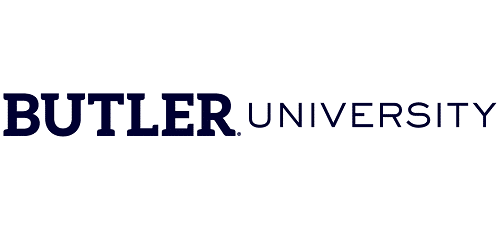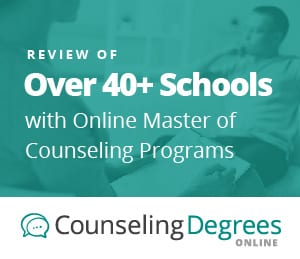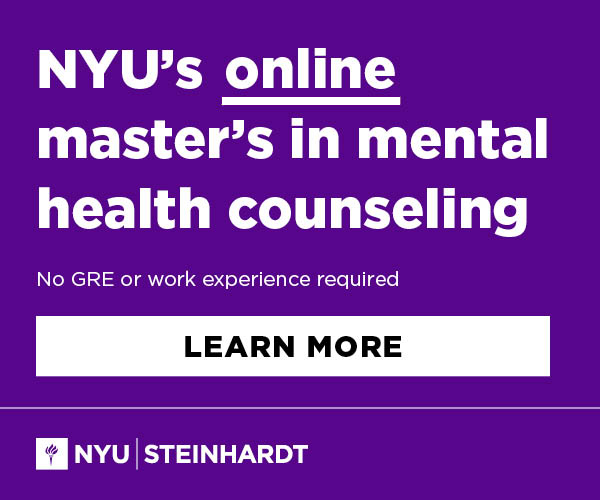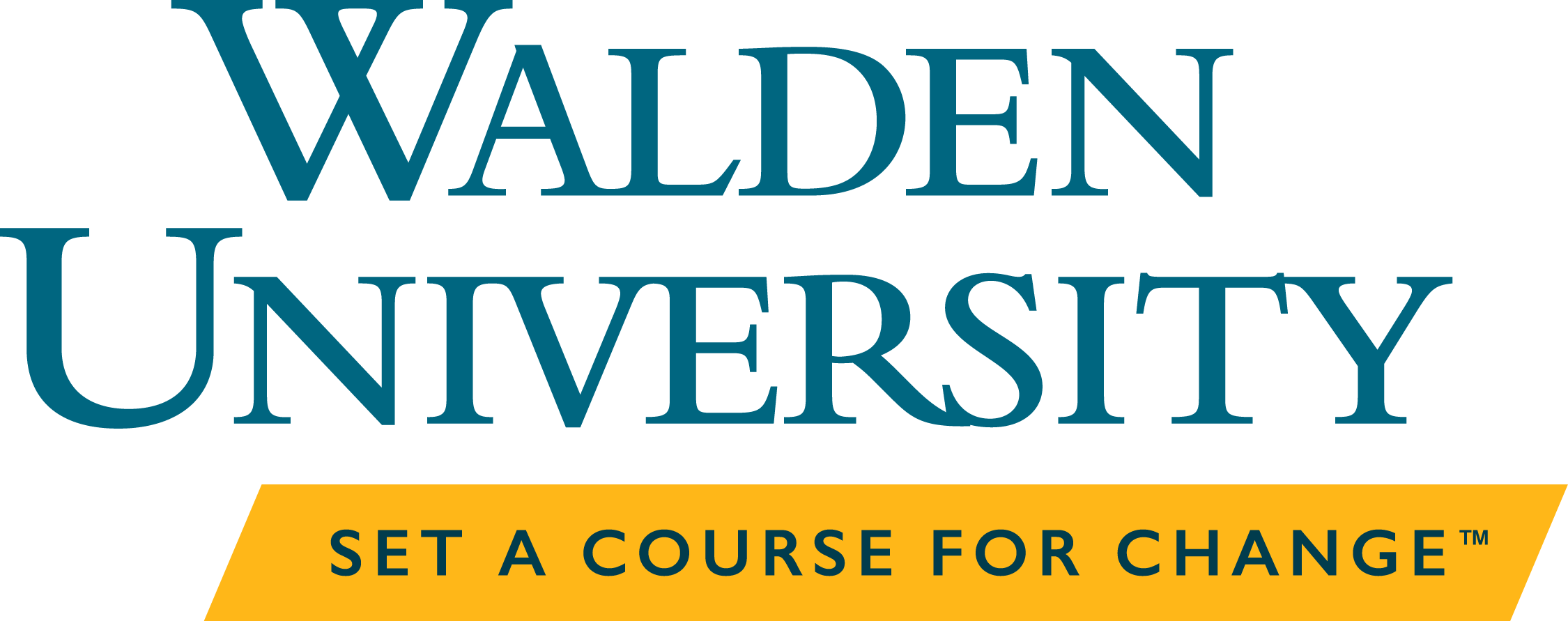 Walden University : MS Dual Degree in Clinical Mental Health Counseling and School Counseling (CACREP Accredited, six specializations to choose from)
Walden University : MS Dual Degree in Clinical Mental Health Counseling and School Counseling (CACREP Accredited, six specializations to choose from) Walden University : MS in School Counseling (CACREP Accredited)
Walden University : MS in School Counseling (CACREP Accredited) Liberty University : MED: School Counseling (Online with required intensives)
Liberty University : MED: School Counseling (Online with required intensives)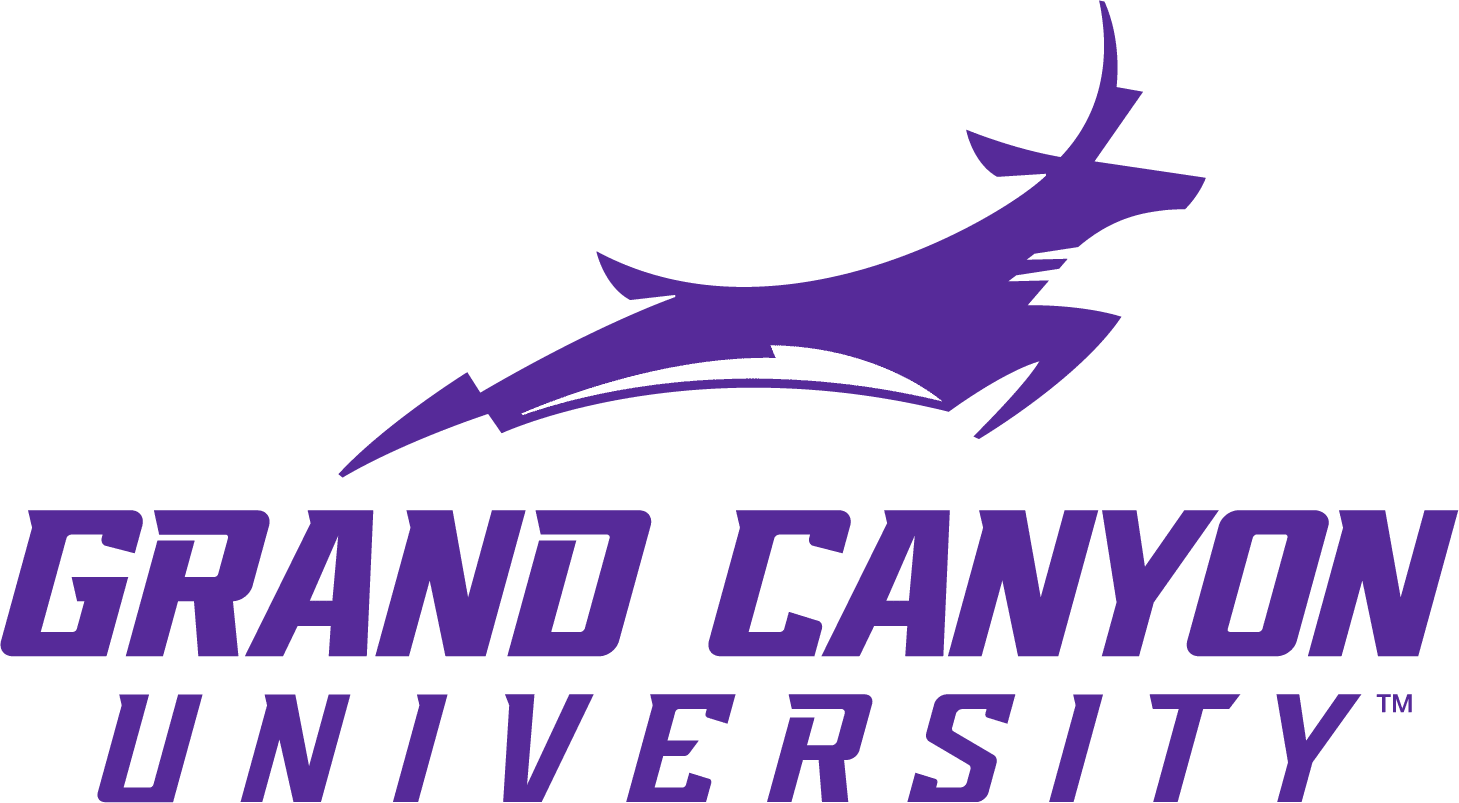 Grand Canyon University : Master of Education in School Counseling (Take the next step toward excellence with a master's degree in Education from GCU.)
Grand Canyon University : Master of Education in School Counseling (Take the next step toward excellence with a master's degree in Education from GCU.) The Chicago School : Ph.D. in Counselor Education and Supervision (Online Programs.)
The Chicago School : Ph.D. in Counselor Education and Supervision (Online Programs.) University of Denver : Master of Arts in School Counseling (No GRE required)
University of Denver : Master of Arts in School Counseling (No GRE required) University of Wisconsin – Superior : MSE Counseling - School Counseling Track (100% Online, No GRE Required)
University of Wisconsin – Superior : MSE Counseling - School Counseling Track (100% Online, No GRE Required) Arkansas State University : MSE School Counseling - Crisis & Trauma Concentration (100% Online, No Teaching Experience Required)
Arkansas State University : MSE School Counseling - Crisis & Trauma Concentration (100% Online, No Teaching Experience Required) Arkansas State University : MSE School Counseling - Special Populations Concentration (100% Online, No Teaching Experience Required)
Arkansas State University : MSE School Counseling - Special Populations Concentration (100% Online, No Teaching Experience Required)What Is a School Counselor?
School counselors generally focus on helping students plan for what they will do after they graduate from high school. They may help students decide the next steps in their education or careers and conduct tests to find their most prominent skill sets.
In some settings, school counselors can be a source of support for students navigating normal life circumstances and the pressures of academic achievement. School counselors can also work individually with students, developing unique plans to mentor them and supporting a positive experience for them during their daily learning.
School counselors can be involved in the creation of awareness programs focused on positive mental health, healthy relationships, and specialized topics such as bullying and drug use. The goal of counseling is often focused on working through the emotions related to normal development, life changes, and pressures associated with learning and acclimating to the educational environment.
What Is a School Psychologist?
School psychologists, on the other hand, help students with their mental and emotional health. They may conduct examinations to assess students’ mental conditions and provide support for any of their academic, behavioral, or emotional needs.
School psychologists are unique professionals who receive extensive training in psychology. Their main purpose may be to determine students’ needs and ensure that they are put in an educational program suitable for their positive growth.
In some cases, school psychologists may work with children who have been diagnosed with moderate to severe psychological disorders. This can include developing educational plans that can accommodate these needs, engaging in team meetings, collaborating with parents and school staff to develop an individualized plan, and following up with students while they engage in their daily activities in the educational setting.
School psychology was developed based on behavioral science, making this an excellent degree for students who are intrigued by the study of normal and abnormal behavior and would like to extend their knowledge into the field of education.
Consider a Featured Online Counseling Program
| School and Program Information | Online Program? Entry Requirements |
Course Information |
|---|---|---|
| Walden University
MS Dual Degree in Clinical Mental Health Counseling and School Counseling
 CACREP Accredited CACREP Accredited |
✔ Online
GRE scores not required |
The counseling field is in need of qualified, compassionate professionals like you to meet the demand for services. In Walden's clinical mental health counseling and school counseling dual degree program, you’ll gain the insights and hands-on training to positively impact the lives of children, adults, and families. Learn More |
| Walden University
MS in School Counseling
 CACREP Accredited CACREP Accredited |
✔ Online
GRE scores not required |
School counselors help students overcome obstacles and shape successful futures. Walden’s online MS in School Counseling program will give you a solid foundation in school counseling theories, approaches, and best practices while enabling you to gain hands-on experience. Learn More |
| Liberty University
MED: School Counseling
 CACREP Accredited CACREP Accredited |
✔ Online
Online with required intensives |
Liberty University’s CACREP-accredited Master of Education (M.Ed.) in School Counseling can help equip you to work as a school counselor in Christian, public, and private schools. Online and on campus. Training Champions for Christ since 1971. Learn More |
| Grand Canyon University
Master of Education in School Counseling
NASAC Accredited |
✔ Online
|
At GCU, school-counselors-in-training candidates develop into more than school counselors, they grow into compassionate, servant leaders with strong ethics and morals to positively make a greater difference in communities and the lives of children. Learn More |
| The Chicago School
Ph.D. in Counselor Education and Supervision
|
✔ Online
Master's Degree Required. |
The online Ph.D. in Counselor Education and Supervision program prepares graduates to act as educators and leaders in the field of counseling. Ph.D. Supervision students engage in the evaluation of theoretical and practical aspects of counseling through both qualitative and quantitative research. Learn More |
| University of Denver
Master of Arts in School Counseling
Designed to adhere to CACREP standards |
✔ Online
No GRE Required; Minimum GPA 2.5 Required |
Earn a Master’s degree in School Counseling online from the University of Denver. Learn from doctoral-level faculty in live classes and gain experience through mock counseling and in-field training. No GRE required. Complete in as few as 24 months. Learn More |
| University of Wisconsin – Superior
MSE Counseling - School Counseling Track
|
✔ Online
100% Online, No GRE Required |
Aligned to state law and accreditation standards, our programs equip you with the academic and professional development that will prepare you for the Wisconsin and/or Minnesota counseling licensure exams. Designed for teachers and nonteachers, this program provides the professional development and practical experience you need to enrich your counseling acumen and grow your impact on students' wellbeing. Learn More |
| Arkansas State University
MSE School Counseling - Crisis & Trauma Concentration
|
✔ Online
100% Online, No Teaching Experience Required |
Learn to foster the mental health wellbeing of K-12 students who have experienced life-changing traumatic events. Gain the specialized knowledge and tools you need to be fully qualified in supporting students from all backgrounds. Learn More |
| Arkansas State University
MSE School Counseling - Special Populations Concentration
|
✔ Online
100% Online, No Teaching Experience Required |
Designed to intentionally hone your expertise in specific subgroups, this master's program online equips you to counsel K-12 students facing distinctive challenges. Areas of focus include special education, gifted and talented, and English as a second language. Learn More |
*Sponsored Counseling Programs
Online CACREP Accredited programs | Online MPCAC Accredited programs
Pros and Cons: School Counseling vs. School Psychology
Some individuals are drawn to school counseling or school psychology based on their specific career goals and interests. Understanding the qualification requirements and pros and cons of each role can help you decide which path is right for you.
School Counselor: Pros and Cons
Here are some school counselor pros and cons to consider.
Pros:
Cons:
School Psychologist: Pros and Cons
Here are a few school psychologist pros and cons.
Pros:
Cons:
 Walden University - MS in School Counseling (CACREP Accredited)
Walden University - MS in School Counseling (CACREP Accredited)
 Liberty University - MED: School Counseling (CACREP and NCATE through CAEP Accredited)
Liberty University - MED: School Counseling (CACREP and NCATE through CAEP Accredited)
 Grand Canyon University - Master of Education in School Counseling (NASAC Accredited)
Grand Canyon University - Master of Education in School Counseling (NASAC Accredited)
 The Chicago School - Ph.D. in Counselor Education and Supervision (WASC and WSCUC Accredited)
The Chicago School - Ph.D. in Counselor Education and Supervision (WASC and WSCUC Accredited)
Educational Requirements
Individuals considering careers as either school psychologist or school counselor should ensure that their educational plan aligns with what is required for licensure in their chosen field. Like many other careers in psychology-based fields, the minimum educational requirement is often a master’s degree.
As a great first step for either role, you should begin your specialized learning at the bachelor’s level. A large majority of aspiring school psychologists and school counselors choose to earn a bachelor’s degree in psychology or education to solidify their foundational knowledge within either field.
Following the bachelor’s program, you should choose a graduate option that is best aligned with the career you plan to pursue. A multitude of online degree programs are available in both school psychology and school counseling.
Learn more about career requirements:
CACREP- and NASP-Accredited Programs to Consider
One of the most important and vital aspects of your educational program lies in its accreditation. To receive a license as a school counselor or psychologist, you must complete your degree at an institution that has received valid accreditation from a respected agency.
Popular accreditation agencies for you to become familiar with include the Council for Accreditation of Counseling and Related Educational Programs (CACREP) and the National Association of School Psychologists (NASP).
Learn more about accredited degree programs:
The majority of school psychology degree programs that the NASP has accredited are found at the Ed.S. and Ph.D. level. This accreditation agency provides you with a list of potential programs that have been proven efficient when training professionals in this field. Take a look at a few NASP-accredited programs that would be great options for your career below.
- Northern Arizona University: Ed.S. in School Psychology
- University of Denver: Ed.S. in School Psychology
Becoming a school counselor begins with a reliable master’s in school counseling program. Explore some of the CACREP-accredited graduate programs in school counseling below.
- Adams State University: Online M.Ed. in School Counseling
- Indiana Wesleyan University: Online MA in School Counseling
Classes to Take
To fulfill the requirements of your chosen profession, you will find a variety of coursework options that push you to develop skills in empathy, data assessment, and behavioral analysis. Here are some classes that may be helpful regardless of whether you choose school psychology or school counseling.
Life Planning and Career Development
A school counselor may play a major part in helping students plan for their futures. Skills assessments, personality tests, and even detailed individual planning are a few of the tools that professionals in school counseling can use to help students find a path to success after their high school experience.
Tests and Measures
A major component of both school counseling and school psychology is the use of tests and measurements to better understand a student’s behaviors and capabilities. This coursework can help individuals become familiar with some of the standard tests and assessments used to determine a supportive path for their students, as well as develop treatment plans per their results.
Crisis and Trauma Counseling
Working in the school setting can involve helping children from a wide range of backgrounds. This coursework focuses specifically on the needs of children who have experienced trauma, as well as introduces some key factors in managing crises while on the job. The differences in brain development, resilience, and mental health disorders are primary subjects in this course.
Counseling Licensure
School psychology and school counseling have similar requirements for licensure in each state. If you are interested in pursuing licensure within either of these fields, you should begin your experience by choosing an accredited degree program. Requirements may vary between states, however, and students should research the relevant qualifications of their state before applying.
Most states outline the licensing requirements clearly on their licensing division’s website. You should have access to these standards, which can act as your guide from start to finish during your educational and practical experiences.
When you submit your application for licensure, you may be asked to also include a detailed transcript from your institution, documentation noting your completion of the required supervised experience with a licensed and approved supervisor, and proof of completion of any board or state examinations required in your state.
Completing all of these steps can lead you toward becoming a successful counselor in an educational setting in your community.
Counseling Careers Available to You
School psychologists and school counselors may choose to work in school settings. School counselors in schools can help students navigate difficult topics such as drug abuse, neglect, and even sexual development. They may also assess the needs of students, determine their developmental abilities, and designate programs to help them thrive within the school system.
Alternatively, some with degrees in school psychology and school counseling may seek out career options that are focused on improving counseling techniques in both private and public school systems. They may even use their degrees to teach aspiring school counselors in a university setting.
School psychologists can pursue roles collaborating with state agencies that deal with children in foster care to complete the children’s educational planning programs in accordance with their individual needs. Or they may help create new and effective psychological testing tools for special education, mental health, and intelligence.
They may also work on the policy side of education, improving mental health services and implementing individual learning plans.
School Psychologist vs. Guidance Counselor
Most noteworthy in discerning the differences between school psychologist and guidance counselor roles is their scale of operation within the school. As mentioned above, school psychologists have advanced knowledge of behavioral psychology and often oversee the mental health procedures and plans in the school. They may occasionally interact with clients or students on an individual basis.
Guidance counselors, who are sometimes considered precursors to the more modern, proactive role of school counselors, generally engage in individual and group counseling based on the needs of the school and the student, as determined through student evaluations.
The guidance counselor may function as a touchstone for students in a way that the school psychologist often does not. Guidance counselors teach students about topics related to drug abuse, bullying, and future career trajectories while working with educators and other authorities in the students’ lives to ensure holistic, consistent, and beneficial development.
Is a School Counselor a Therapist?
Aspiring counselors may wonder if a school counselor is a therapist who just happens to work in a school, or if other distinctions exist between the two roles.
The short answer is no. School counselors are not trained with the same kinds of talk therapy skills that a licensed therapist would possess, though they are equipped to recognize when students need to seek the assistance of a therapist outside of school. This is one of the most important roles that a school counselor can play, referring students to additional mental health services as needed.
School Psychologist vs. School Counselor Salary
Individuals assessing school psychologist vs. school counselor salaries should be aware that they can vary based on experience, role, location, and type of institution.
According to the U.S. Bureau of Labor Statistics (BLS), the median annual salary for psychologists in school settings is $77,560 as of 2020. This field is projected to grow by 10% between 2020 and 2030.
The BLS also reports that school counselors have a median annual salary of $64,960 as of 2020. This field is projected to grow by 11% between 2020 and 2030.
Become a School Counselor or School Psychologist
While school counselor and school psychologist roles may differ, each one offers the opportunity to have a fulfilling career supporting students. If you think this path may be right for you, explore some of the available career options, programs accepting applicants, and how to get licensed. Look into each path, and start your career in the education system.
- Counseling Degrees Online
- Online Master of Arts in Counseling
- Bachelor’s of Counseling Degree Programs
- Online Master’s Degrees in Counseling
- Counseling Schools by State
- Counseling Careers
- The 12 Highest-Paying Counseling Jobs to Consider
Sources:
Council for the Accreditation of Counseling and Related Educational Programs, Find a Program
Indeed, “7 Pros and Cons of Being a School Counselor (with Tips)”
Indeed, “School Psychologist vs. School Counselor”
KidsHealth, School Counselors
National Association of School Psychologists, Approved Programs
National Association of School Psychologists, Who Are School Psychologists
U.S. Bureau of Labor Statistics, Psychologists
U.S. Bureau of Labor Statistics, School and Career Counselors and Advisors

 University of Denver - Master of Arts in School Counseling
University of Denver - Master of Arts in School Counseling University of Wisconsin – Superior - MSE Counseling - School Counseling Track
University of Wisconsin – Superior - MSE Counseling - School Counseling Track Arkansas State University - MSE School Counseling - Crisis & Trauma Concentration
Arkansas State University - MSE School Counseling - Crisis & Trauma Concentration

